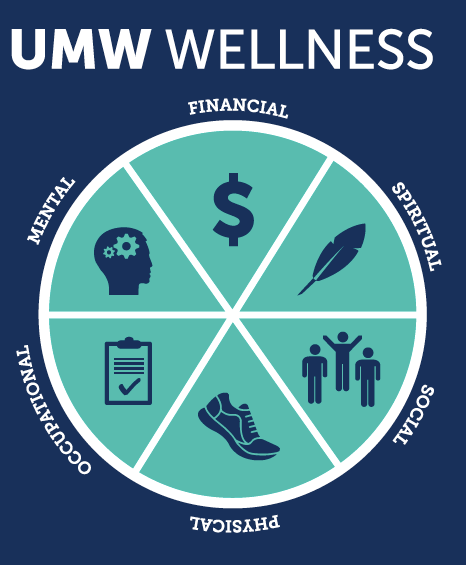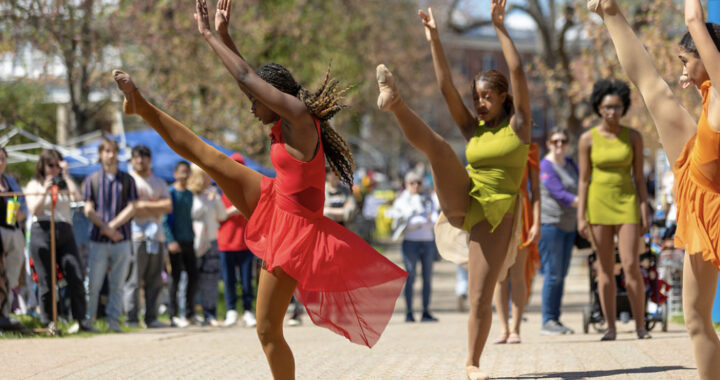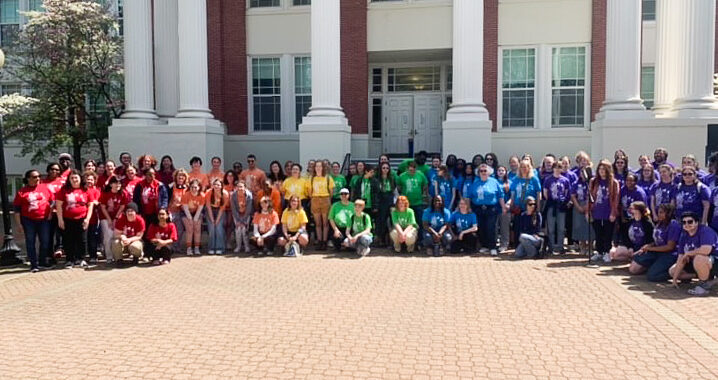Nearly half of UMW students impacted by Seasonal Affective Disorder
4 min read
The President’s Wellness Council promotes student health on campus. (UMW Wellness Facebook)
by JAMES PRYOR
Staff Writer
“In 2019, 47% of UMW students said they felt so depressed it was hard to function,” reads the recent issue of the Wash Post posted in the Simpson Library, HCC and other locations on campus. These flyers, created by the President’s Council on Wellness and UMW Student Affairs, give the details of seasonal affective disorder (S.A.D.), along with symptoms of S.A.D., such as fatigue, depression, social withdrawal and hopelessness. They also share data from the American College Health Association-National College Health Assessment II, a nationwide survey UMW participated in during the spring of 2019. This 47 percent is larger than the national average, which polled at 41.9 percent.
The report covered issues ranging from the general health of students, academic impacts in response to stress, and assessed the mental health of students at UMW. Alongside UMW, 140 other institutions were asked to take part in the data recording. A total of 88,178 surveys were collected, with an overall response rate of 17 percent. From UMW, 449 responses were received, making the response rate for UMW 12.9 percent.
Tevya Zukor, director of the Tally Center, said, “The idea that about half of students say that they have felt so depressed that it’s hard to function is probably an accurate statement, but some of that is seasonal affective disorder, some of that’s depression, and in fact, a good bit of that is that sad things sometimes just make us sad.”
Zukor stressed the impact of an individual’s situation on their mental health, “For example, if you have a grandparent or a parent or someone we care about die, it doesn’t mean we are clinically depressed, as much as it means we might still feel depressed and struggle to function understandably at that moment,” said Zukor.
S.A.D is not a new concept; it has gone under different names in the past. “Some people used to call what now gets diagnosed as seasonal affective disorder ‘the winter blues’. So there’s been this understanding in the world for a very long time that many people have an increase in their depressive symptoms in the winter,” said Zukor.
Grace Hopps, freshman, has been dealing with seasonal affective disorder since the sixth grade, and said staying productive is her main way to fight off the depression of S.A.D. “Staying out of the dorm really helps with productivity if that’s an issue because, personally, once I get home all I want to do is curl up in bed,” said Hopps.
The Wash Post lists not only the warning signs of S.A.D., but also strategies to cope with increased feelings of depression during the colder months. Coping mechanisms such as exercising to release natural endorphins, and consciously shifting one’s mindset to put a positive spin on negative situations are listed, along with the first recommended bullet point, “Increase your natural light exposure by opening your curtains to let in light or going for a walk outdoors.”
Zukor commented on light and its effect on S.A.D, “It gets worse the further you are from the equator. It has everything to do with the sun, vitamin D, things like that. One of the effective treatments for seasonal affective disorder is light therapy. Lightboxes are shown to be really, really effective.”
Derek Knight, a freshman on campus who deals with vitamin D deficiency, something often brought up in comparison to S.A.D, has found his own way to deal with the colder months.“I take vitamin D supplements year-round, but in the winter specifically, I go out of my way to get vitamin D. I also refuse to listen to depressing music, especially at night,” said Knight.
When reflecting on the 47 percent of UMW students who reported feeling too depressed to function, both Hopps and Knight expected the percentage to be higher.
“I actually thought that number would be higher, but my personal friend group might be disproportionately made up by people who have S.A.D. or some other depressive thing,” said Knight.
UMW has taken measures to make sure all students are healthy and happy on campus. Releasing the flyer has not only boosted awareness but has given tips to help cope with mental health through multiple mechanisms such as exercising, spending time in soft, yellow light, practicing mindfulness and having the Tally Center available for all students.
Zukor’s stance on coping mechanisms was entirely positive: “If it’s placebo or not it doesn’t matter. If you’re feeling better from doing it… Good. You’re feeling less depressed.”











